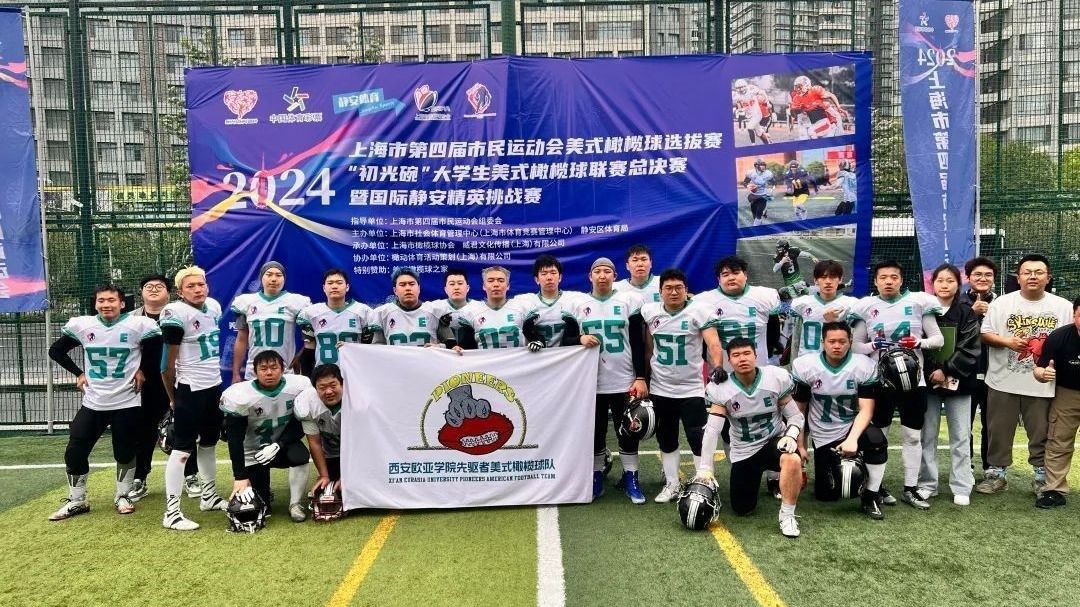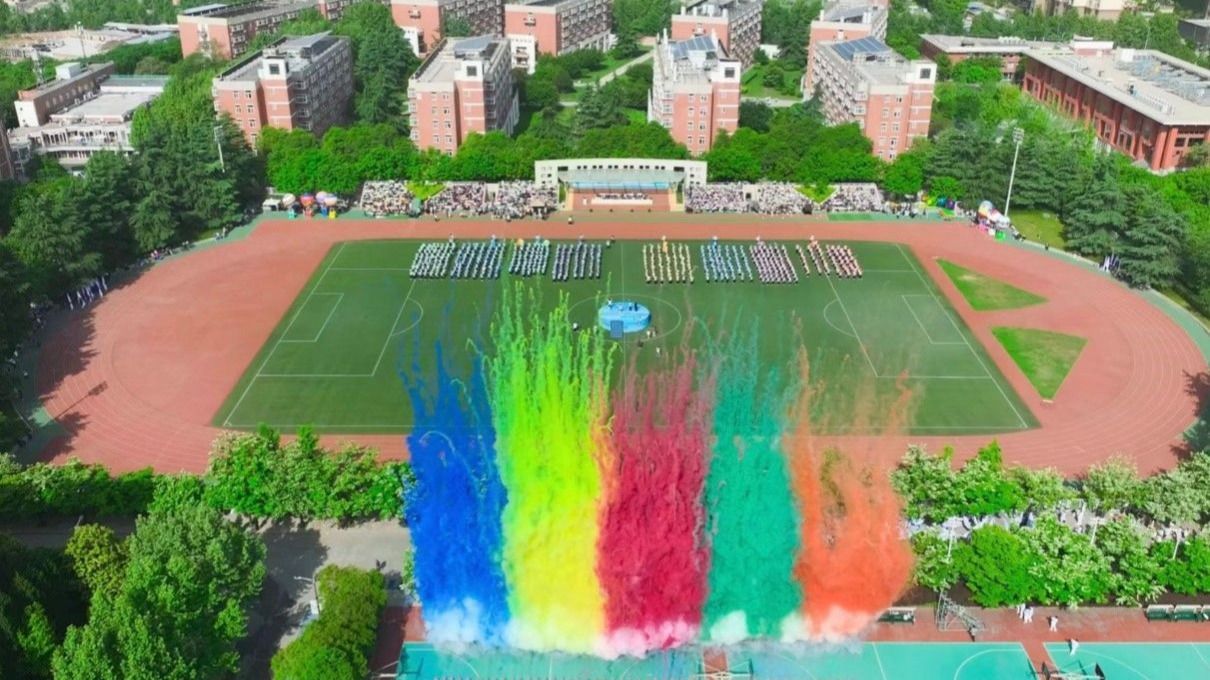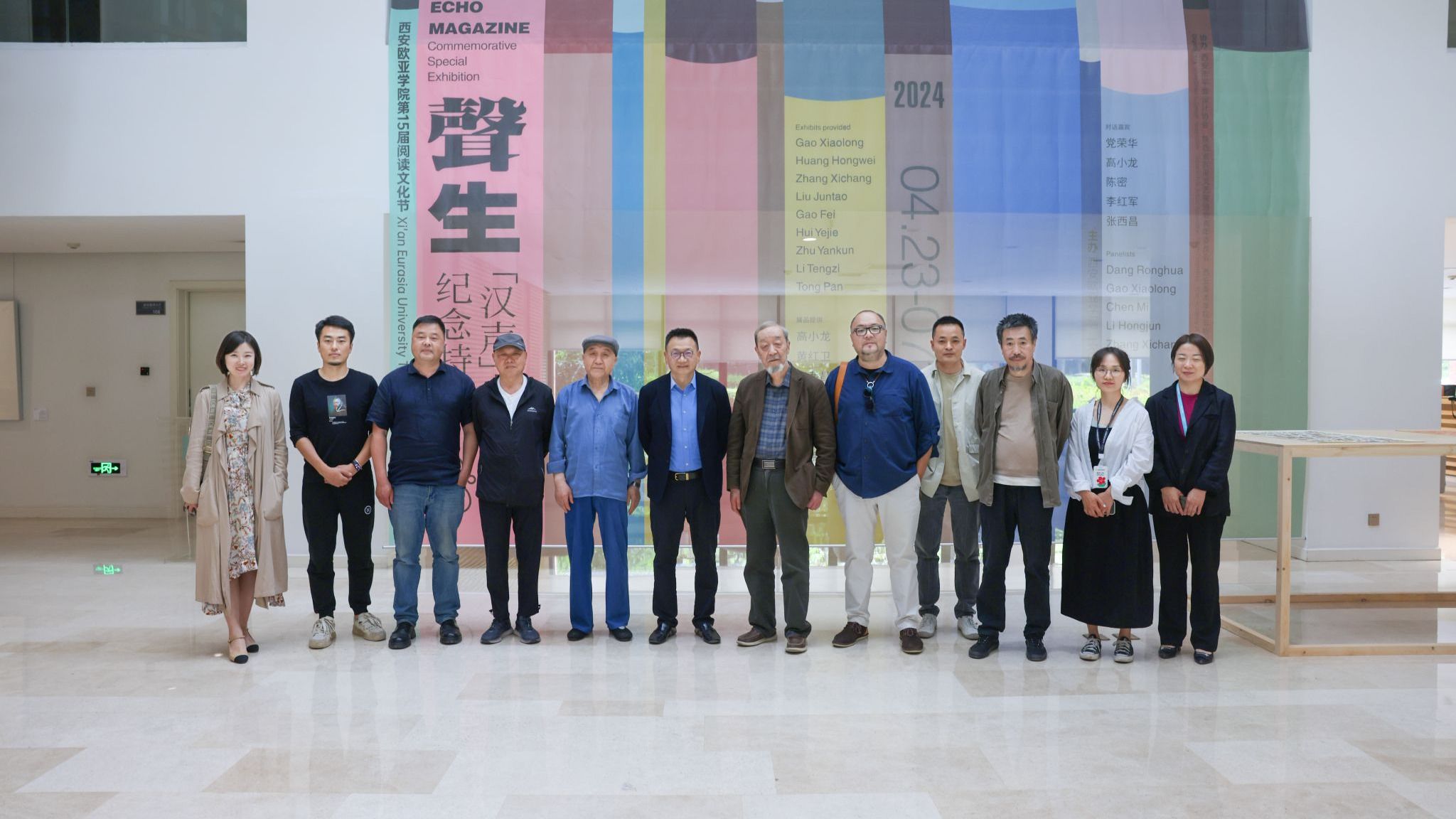On November 18, Xi'an Eurasia University successfully hosted the first Applied University General Writing Forum with the theme "Ability to Think and Write." General academic writing administrators, teachers, and research scholars from over 40 universities gathered at Xi'an Eurasia University to engage in focused discussions and exchanges on the teaching reform of general writing in applied universities and the challenges faced.
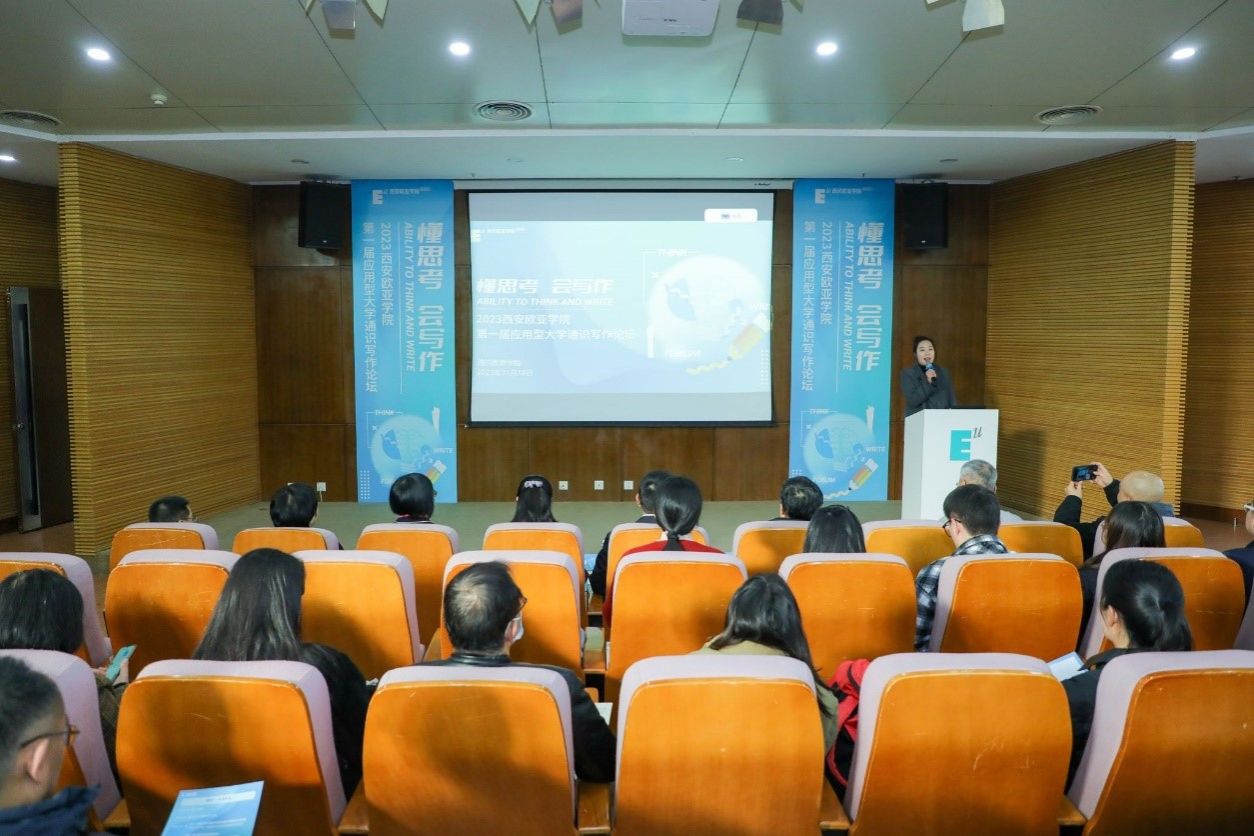
(Fig. 1) Scene at the Forum
Guests at the forum included Wang Chunchun, deputy director of the Institute of Higher Education of China Academy of Educational Sciences and member of the Professional Committee on Pedagogy of China Association of Higher Education, Associate Professor Zheng Hong, director of the Consulting Department of Faculty Development Center of Xiamen University, Zhong Weiping, director of the News Center of Xuchang University and leader of the national first-class undergraduate course "Project-Based Writing," Zhang Dongxu, writer and associate dean of the School of Creative Writing of Jinzhong College of Information, Professor Zhao Juming from the School of Education of Huazhong University of Science and Technology, Professor Hu Jianbo, Chairman of Xi'an Eurasia University, and Professor Sun Jianrong, Vice President of Xi'an Eurasia University.
Theme Forum

(Fig. 2) Wang Chunchun Gives a Keynote Speech
Research in learning sciences shows that college students around the age of 20 should focus on developing rational thinking abilities, and writing is one of the important ways to train thinking abilities. Wang Chunchun delivered a lecture on the theme of "Writing Training in Undergraduate Teaching in American Universities" and introduced intensive writing, which ranks third among the ten excellent undergraduate teaching experiences in the United States. She summarized the practical cases about offering writing courses and experiences that can be drawn upon from elite liberal arts colleges in the U.S. The experiences include teachers across different disciplines generally emphasizing writing training in their courses, providing students with continuous, timely feedback and personalized guidance, focusing on the consolidation, diverse evaluation, display, publication, and application of students' writing achievements, and different departments offering varied support to enhance students' writing abilities, among others.
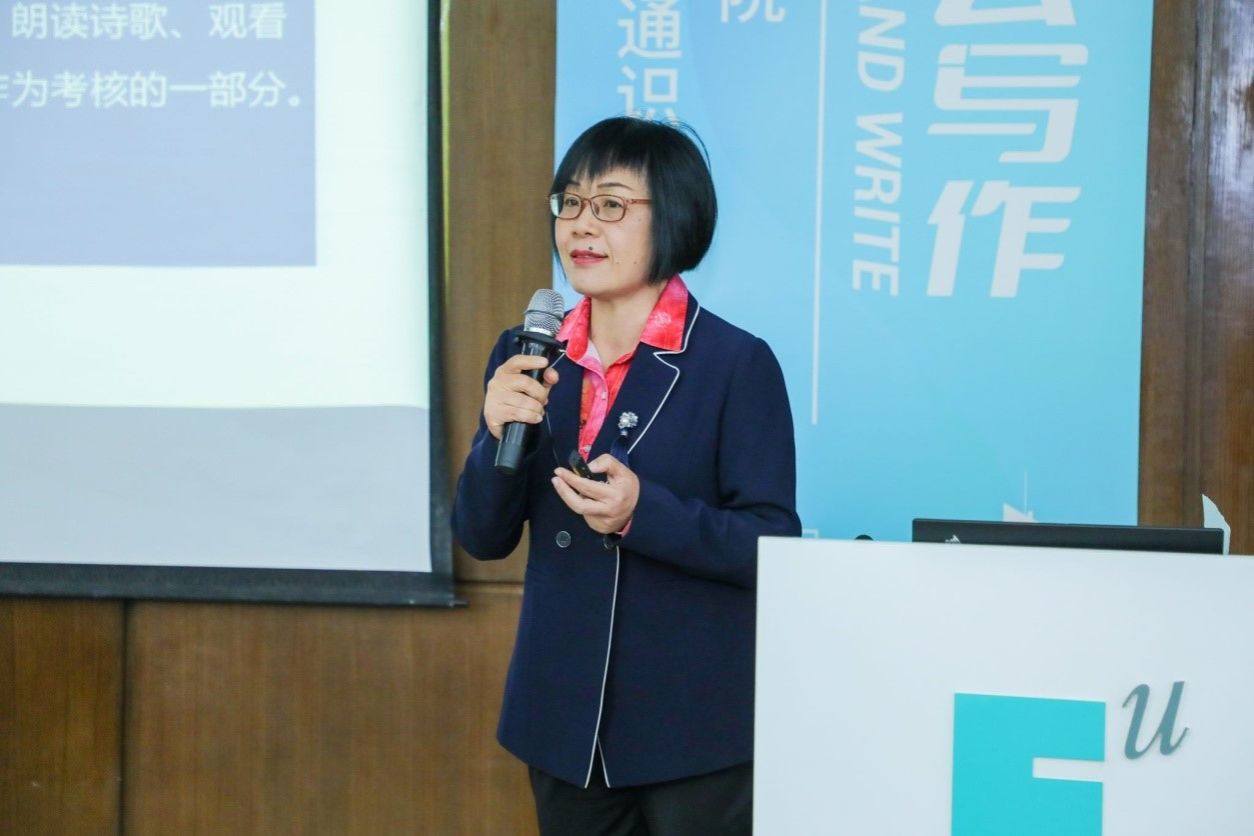
(Fig. 3) Associate Professor Zheng Hong Gives a Keynote Speech
The core concept of general education is to shape students' sound personalities and to develop well-rounded individuals. Under the impact of artificial intelligence, general writing courses should pay more attention to cultivating students' characters. Associate Professor Zheng Hong, using student writing cases from Xiamen University's general education course "Poetry and Distance: Culture and Enlightenment in Travel," summarized the concept and measures for nurturing college students' spontaneous writing. The philosophy focuses on student-centeredness and writing from the heart. The specific measures include: (1) Giving direction without setting a path—letting students "find their own way"; (2) Providing a stage without shackles—allowing students "to dance freely"; (3) Offering feedback without focus on grading—helping students "to perfect themselves." This approach enables mutual nourishment between teachers and students, leading to intellectual growth for students through the process of writing.
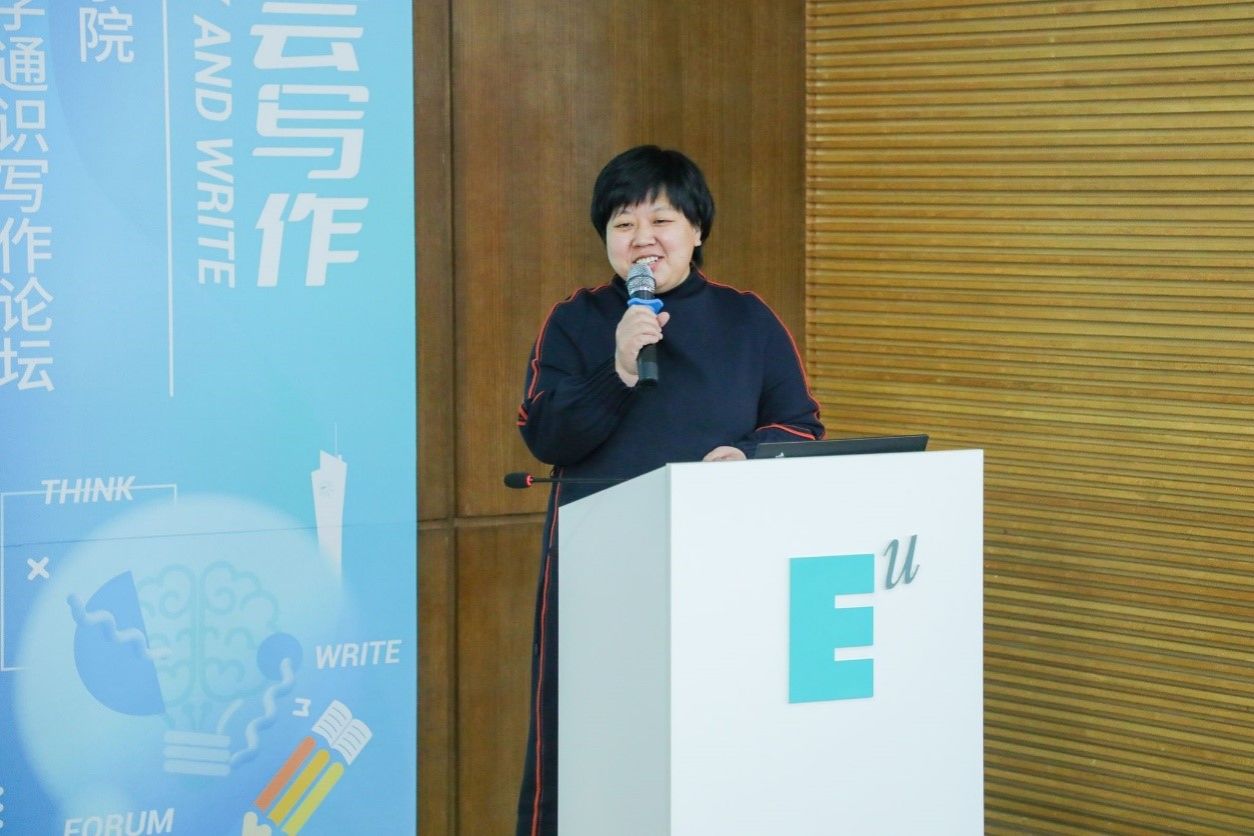
(Fig. 4) Zhong Weiping Gives a Keynote Speech
In a society that urgently needs application-oriented and interdisciplinary talent, cultivating students' writing and communication abilities, along with innovation and practical skills, is an important indicator of meeting societal demands. Taking the national first-class undergraduate course Project-based Writing (social practice) as an example, Teacher Zhong Weiping comprehensively demonstrated the teaching design, organization & implementation, and highlights of this type of general writing course. Starting from specific practices, she analyzed the role, significance, limitations, and breakthroughs of project-based teaching mode in the teaching of general writing, examined its positive effect on improving college students' core competencies, and elaborated on the feasibility of building a new classroom for general writing characterized by openness, practice, and innovation.
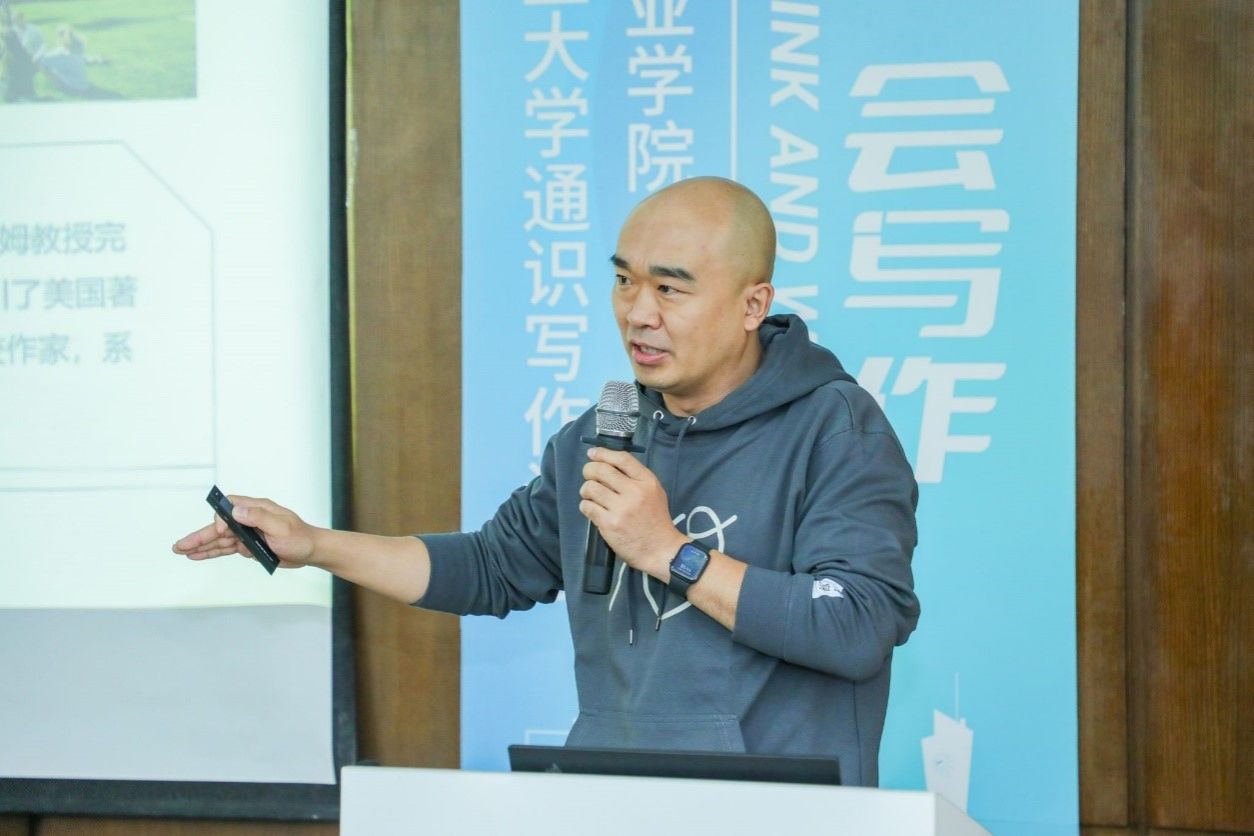
(Fig. 5) Teacher Zhang Dongxu delivers a thematic sharing
Traditional Chinese education in primary and secondary schools has worn down students' aesthetic ability to literary works, so how to stimulate the enthusiasm for writing and reading of students without foundation, interest, or reading habits? Teacher Zhang Dongxu, in a report entitled "Breakthrough in Traditional Creative Writing Education: Let Writers Awaken College Students' Inspiration for Writing", shared a set of effective teaching experience explored by writer-teachers at Jinzhong College of Information during the teaching process: explaining classical texts, teaching literary creation skills, and breaking through dogmas to return literature to aesthetics; guiding students to observe themselves and find stories worth writing from real-life experiences. He stressed that only by breaking through obsolescence, dancing with classical texts, and precipitating aesthetic emotions can writing become a spiritual feast. In this wonderful process, students will also find that writing and reading are an inspirational, surprising, and profound journey.

(Fig. 6) Professor Sun Jianrong delivers a thematic sharing
General education has always been exploring how to better integrate general and specialized courses. In response to this phenomenon and problem, Professor Sun Jianrong gave a report titled "The Connection and Bridging of General Writing Courses and Specialized Courses". He analyzed the differences between Chinese and American writing courses in content design, curriculum, and talent cultivation contribution and pointed out that general writing courses have important academic value, ability value, and effectiveness display value. How to better connect general writing courses with specialized courses in colleges and universities? Sun Jianrong put forward three suggestions: first, improve the writing design in the writing class to promote learning by writing; second, closely combine writing with talent cultivation goals and combine writing with assignments in different subjects; third, enhance training of academic research writing ability and academic research methods.
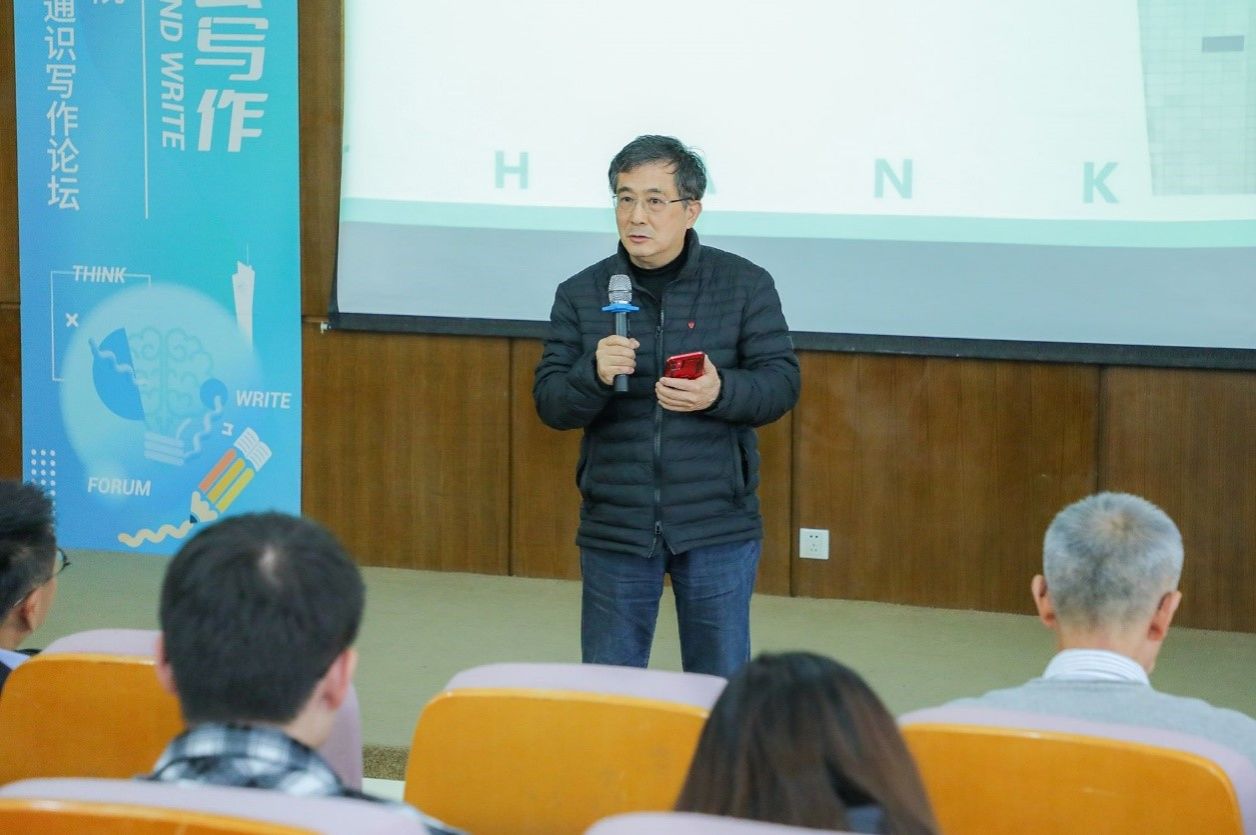
(Fig. 7) Professor Zhao Juming delivers a speech
Professor Zhao Juming, who is familiar with "student-centered" reform, believes that "student-centered" teaching reform should focus on curriculum design. No matter what ideas, modes, methods, means, and technologies, they can only be integrated into a whole through curriculum design. The curriculum design should pay special attention to the "student-centered" principle throughout and combine it with the actual situation of students to promote their effective learning. Only by combining scientific, creative, and practical curriculum design with students' participation in the process can we change the traditional classroom and give full play to the role of "student-centered" teaching reform, thus making fundamental changes in our undergraduate classroom teaching.

(Fig. 8) Professor Hu Jianbo delivers a concluding speech
At the end of the forum, Professor Hu Jianbo made a concluding speech. He said that outstanding academic reports are not only indoctrination but also a feast of thinking. In this exchange of wisdom, various views, insights, and thoughts intertwined in the air to form a colorful cognitive map. Such collision stimulated deep thinking in the audience and pushed new boundaries of thinking. He said, "A truly excellent university should adhere to the educational philosophy of sincerity and integrity, practice in line with the law of education, and achieve faster, better, and stronger growth based on its own resources and students. Xi'an Eurasia University will always uphold a firm belief and persistently implement it."
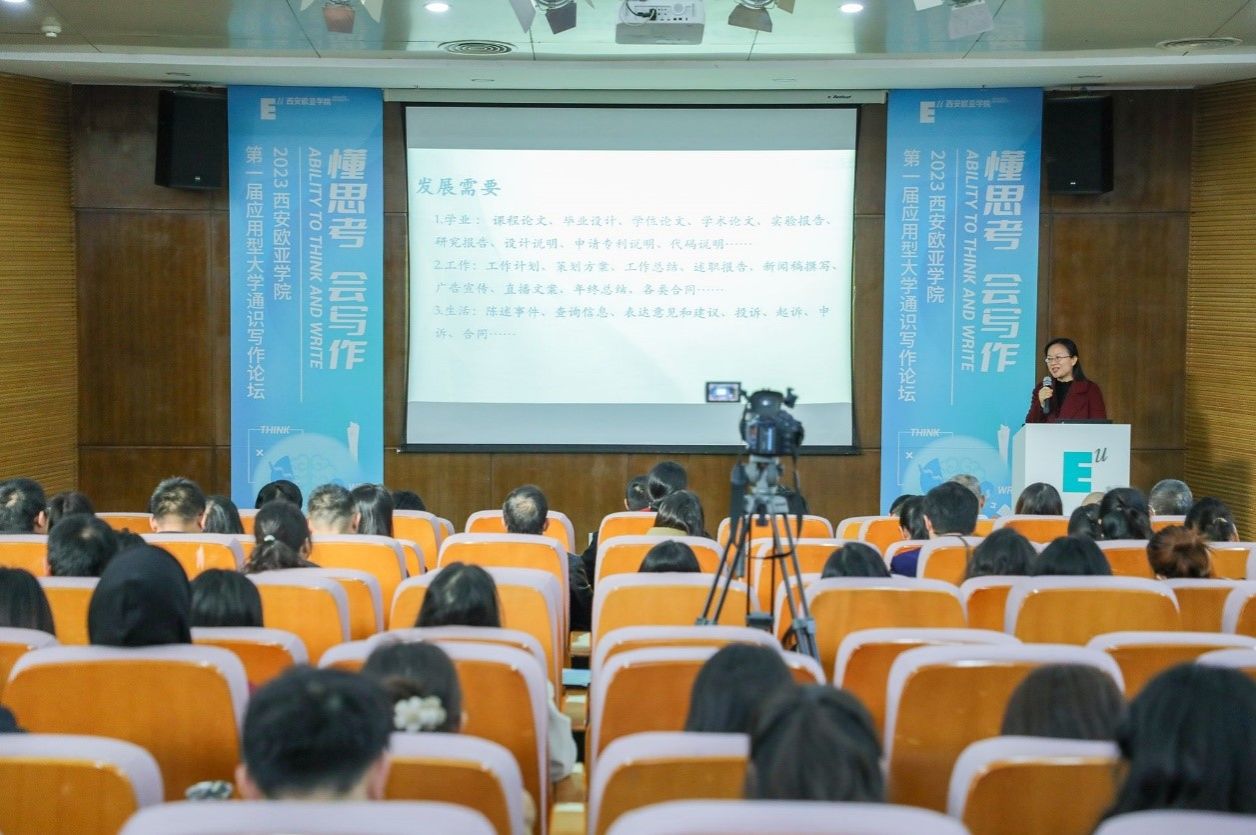
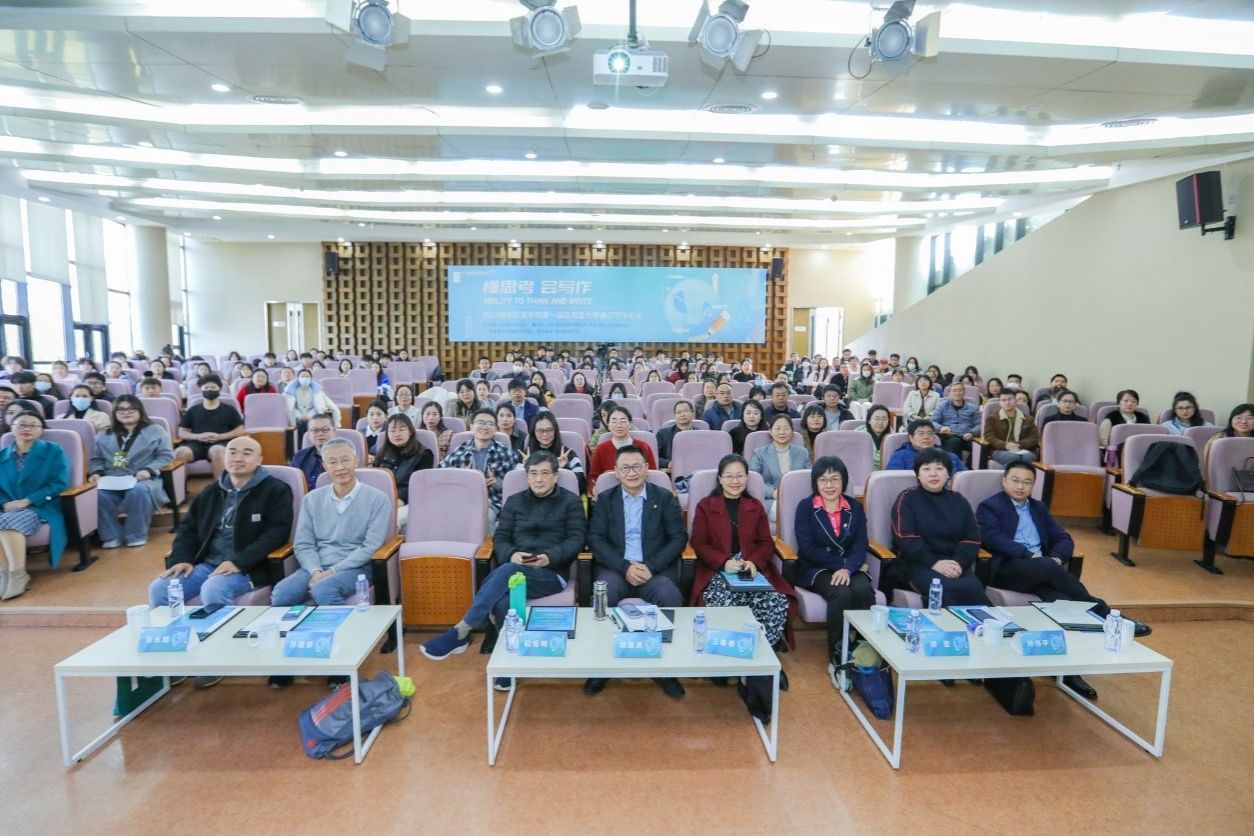
(Fig. 9) Scene of the forum
Writing Workshop
In order to better promote the teaching practice of general writing in applied universities and further improve the educational quality of general writing, this forum also built a workshop on the theme of "How to Promote Undergraduates' Whole-process Writing for Four Years". Associate Professor Lu Zhuoyuan, director of the Writing and Expression course in the School of General Education, discussed with on-site teachers about key actions and plans for undergraduate students' writing throughout the four years in a co-creative manner using action plan and focused conversation methods in team guidance.
The teachers who participated in the workshop were divided into 5 groups and each group was staffed with professional recorders. The design of this organizational structure not only reflected the high tacit understanding of teamwork but also made communication among everyone full of passion and in-depth thinking.
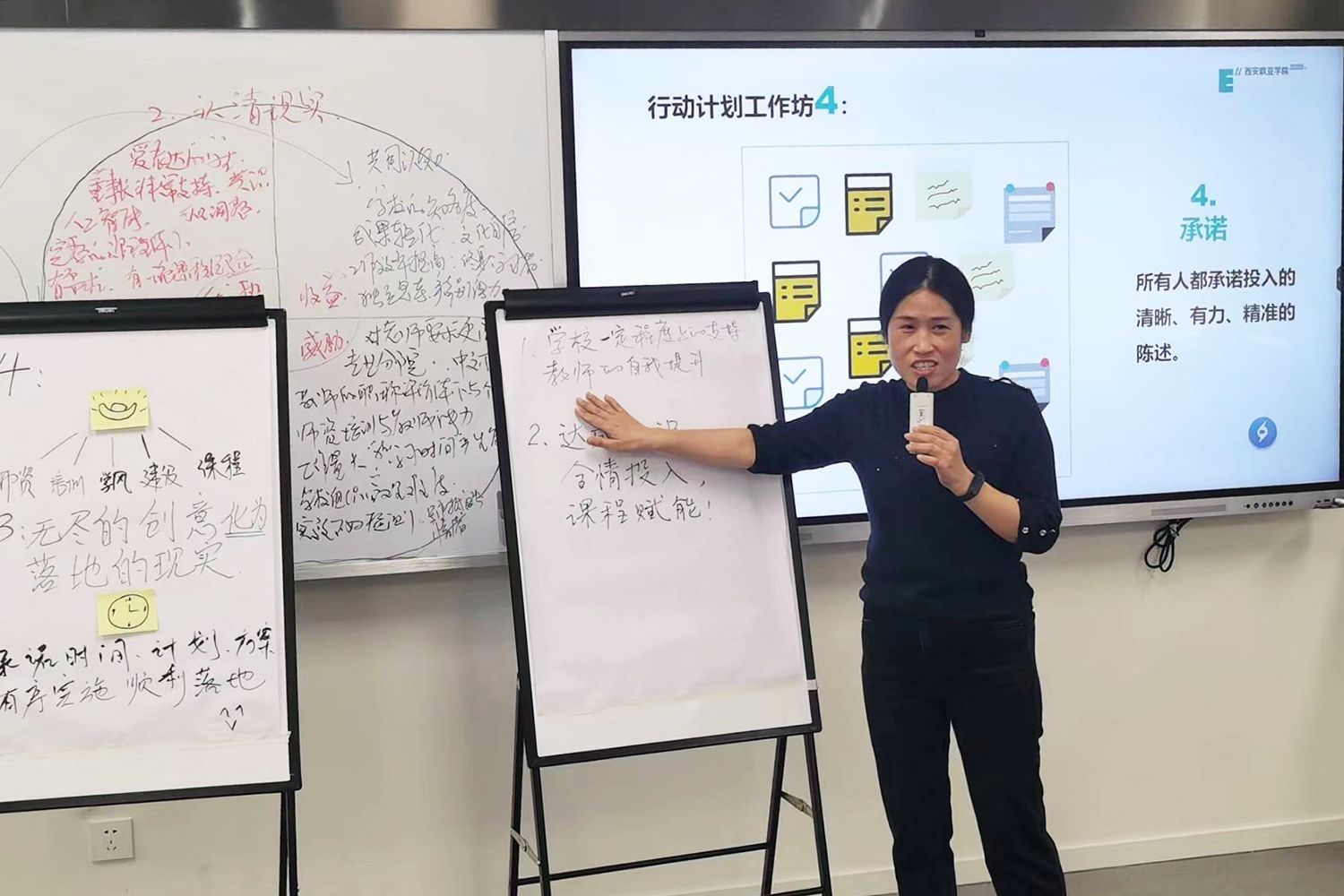
(Fig. 10) Teacher Lu Zhuoyuan teaches in the workshop
At the beginning of the workshop, Lu Zhuoyuan led an in-depth discussion on the current situation of college students' writing, the abilities needed for the future, and the status quo of writing courses at home and abroad. She particularly highlighted the unique value of writing in fostering critical thinking among students. At the same time, Lu Zhuoyuan introduced three guiding principles in TOP, namely the focused conversation method, consensus workshop, and action plan, which provided clear and inspirational guidance for subsequent discussions.
Later, the teachers had an in-depth discussion on "how to integrate writing into all four years of college and all courses". Lu Zhuoyuan invited each teacher one by one to envision the "victory" that this goal could bring after achievement. Through SWOT analysis, teachers actively discussed the advantages, disadvantages, benefits, and dangers of this goal.
In the group brainstorming session, teachers not only reached a common commitment through communication but also formulated innovative and feasible methods based on their own experience and characteristics. By categorizing, naming, and grouping these methods, teachers could contribute their own strength while collectively taking responsibility for achieving the goals. Teachers gave summary speeches in groups and the group leader presented the unique opinions of each group to everyone.

(Fig. 11) Group photo of teachers participating in the workshop
Finally, Lu Zhuoyuan asked everyone to form a circle and talk about their experiences and gains from participating in this activity in a relaxing and pleasant atmosphere via the ORID method and took precious group photos. This workshop not only promoted the collision of ideas but also laid a solid foundation for future cooperation and exchanges.
(Contributed by Guo Hailing and Yu Qi from the School of General Education)



